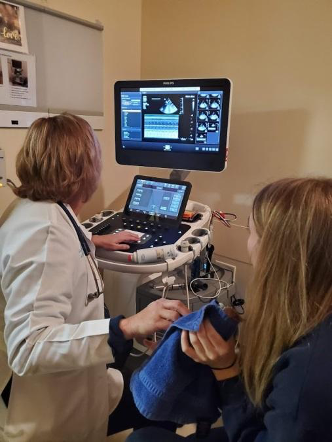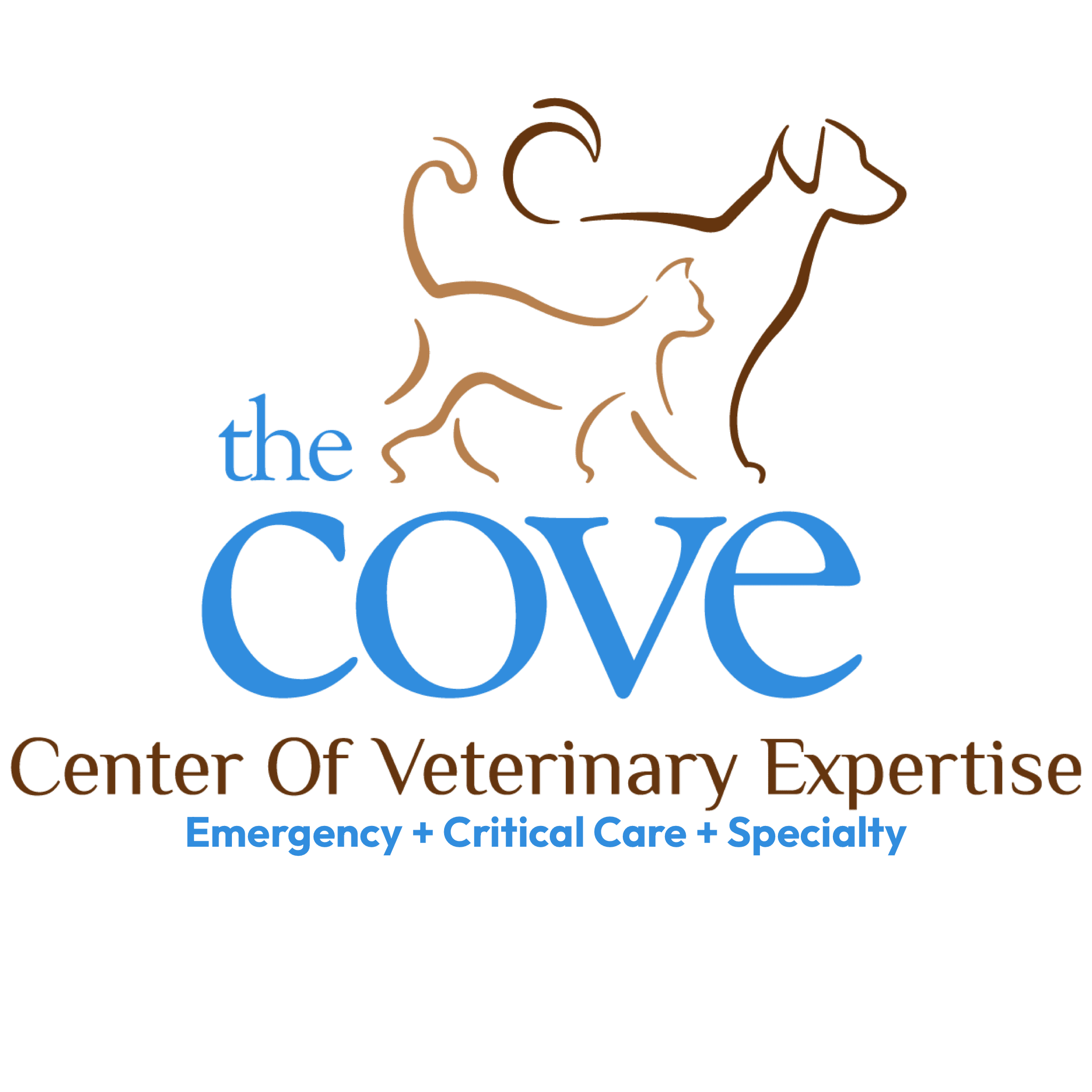The COVE had the honor to assist in the care of a feathery family member of the Virginia Living Museum.
A screech owl named Little Dude was showing signs of trouble. Upon examination from the museum’s veterinarian, he was diagnosed with a heart murmur. Additionally, he had been exhibiting yearly episodes of dyspnea or difficult breathing and lethargy. The tiny owl, who serves as an ambassador for the Virginia Living Museum, also developed weakness in his pelvic limb.
While screech owls can live for 14 years in the wild, Little Dude is now 20, so a few medical problems are expected.
An evaluation by a specialist was recommended to rule out heart disease, particularly atherosclerosis, which is a buildup of cholesterol plaque in the walls of arteries.
The COVE’s Cardiology Team to The Rescue
There aren’t many veterinarians in the country who are specialists in veterinary cardiology. Luckily for Little Dude, The COVE’s Merrilee T. Small, DVM, DACVIM (Cardiology),was just a short ride away. As a highly skilled board-certified veterinary cardiologist, Dr. Small has earned a special place in the hearts of countless pet owners throughout the region.
Here at The COVE, our cardiology department treats animals with conditions affecting the heart, lungs, and respiratory system. Dr. Small has previously provided her expertise to other residents of the Living Museum, and she and the team were more than happy to assist again.
Sometimes a surgical solution is the optimal treatment option for heart-issues. However, the majority of cardiology patients can be treated on an outpatient basis with medical management, even for many, many years.
Unlike dogs and cats, birds are similar to people in that they can develop atherosclerosis, which causes narrowing of the lumen (the inside space of an artery) and therefore increases cardiac pressure. An increase in cardiac pressure can lead to an increase in afterload (the “load” that the heart must eject blood against), which causes left congestive heart failure and the remodeling of the cardiac muscle. Mitral valve insufficiency can develop secondarily to these changes. This is caused when the mitral valve does not close properly, allowing blood to flow backward into the heart.
During the physical exam for Little Dude, a heart murmur was detected, meaning, there was a disturbance of blood flow through the heart. To pinpoint the cause of the murmur, Dr. Small performed an echocardiogram.
Owl Echos Realtime vs Normal: Show Little Dude’s heart beating.
The heart is essentially “upside down” in this picture with the ventricles beating at the top of the screen and the atria below.
Little Dude was diagnosed with mitral insufficiency, the cause of his heart murmur. No evidence of atherosclerosis was identified. However, this can be secondary to atherosclerosis if the mild disease is present. Heart disease was an unlikely cause of his pelvic limb weakness.
His mitral insufficiency was only mild and required no further treatments or therapies. The causes of his yearly episodes of dyspnea and lethargy are still unknown. If symptoms continue or other changes develop, it was recommended to consider re-evaluation in six to 12 months to monitor for any cardiac changes.

Little Dude will continue his routine care and management of his presumptive neuromuscular abnormalities in his pelvic limbs with Dr. Kelsey Hayden, Virginia Living Museum’s first full-time veterinarian.
It was such a ‘hoot’ to help him, and we hope he feels better as he continues to age gracefully.
Pet Cardiology Services at The COVE
If your pet needs advanced cardiology care, Dr. Small and her team are here to help. We also offer advanced veterinary surgery, dentistry, and 24/7 emergency and critical care. For additional questions, you can reach The COVE at 757-935-9111.
About Us
The COVE’s veterinarians and staff wholeheartedly embrace the core values of community, collaboration, commitment, compassion, and integrity. This focus ensures that pets, the people who love them, and their primary care veterinarians have as positive and affirming a healthcare experience as possible, regardless of the circumstances that bring us all together.
